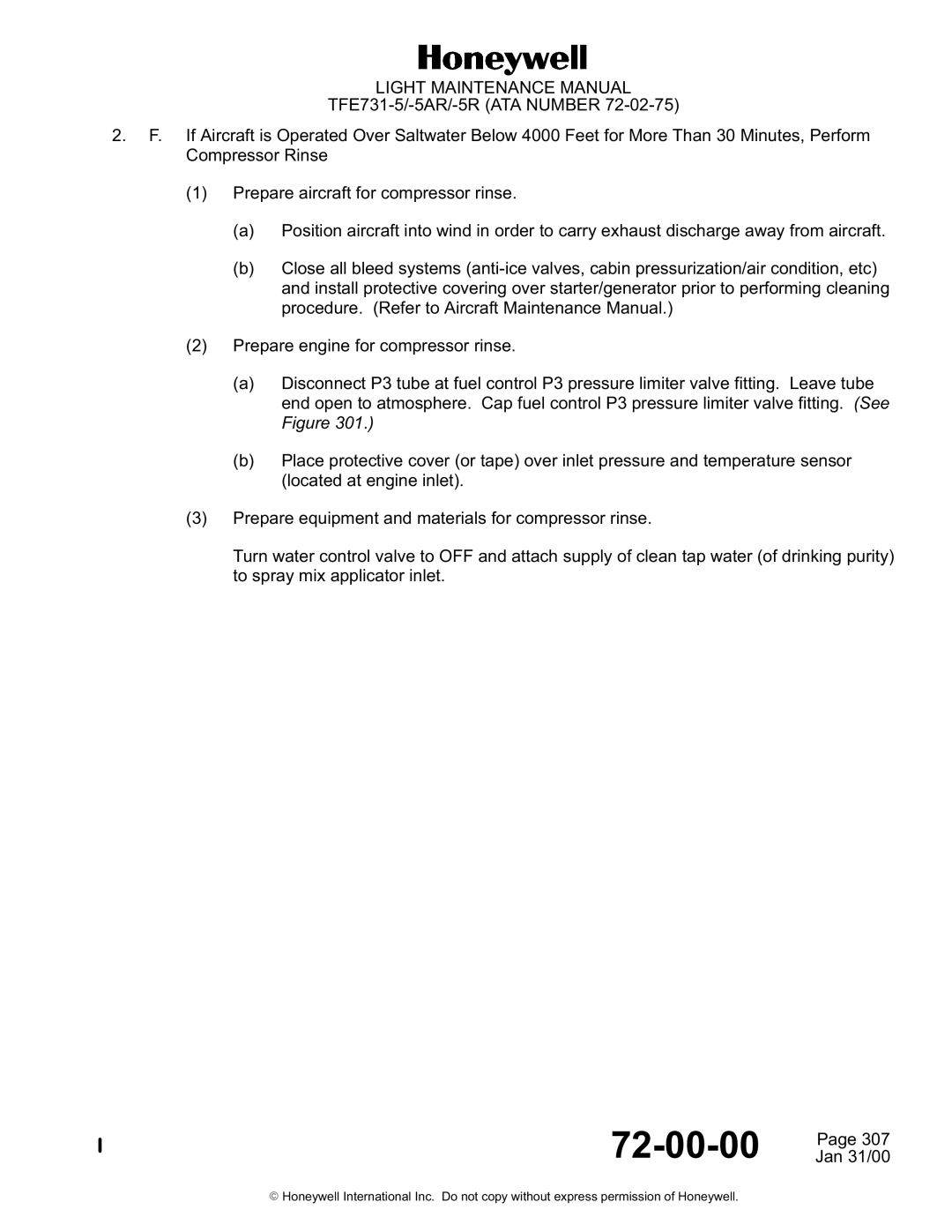TFE731-5-5AR -5R specifications
The Honeywell TFE731-5-5AR and TFE731-5R are advanced turbofan engines widely recognized for their performance and reliability in the business aviation sector. Offering a blend of efficiency and power, these engines are engineered to meet the demands of modern aircraft, contributing to fuel economy and reduced operational costs.One of the main features of the TFE731-5-5AR engine is its high thrust-to-weight ratio. This allows for superior climb performance and overall aircraft agility, essential for competitive operations. The engine produces a thrust rating of up to 4,500 pounds, making it suitable for a variety of business jets. The TFE731-5R version offers similar performance but with modifications tailored to specific aircraft requirements.
Technologically, the TFE731 engines incorporate advanced materials and manufacturing techniques that enhance durability while minimizing maintenance needs. Their design includes a fan system with swept blades, which improves aerodynamic efficiency, resulting in lower specific fuel consumption. This focus on modern aerodynamics translates into significant operational savings over the engine's lifecycle.
Another notable characteristic of the TFE731-5-5AR is its quiet operation. Designed with noise reduction technologies, these engines comply with the strict noise regulations present in many urban environments, making them a popular choice for operators who prioritize environmental compliance. The TFE731-5 series has also received certifications that affirm its low emissions, aligning with global initiatives to reduce the aviation industry's environmental impact.
In terms of reliability, the TFE731 engine family is renowned for its robust performance under varying operational conditions. A proven track record of dependability ensures that operators can complete missions with confidence, minimizing downtime and maintenance costs. The engine features a modular design, which simplifies repairs and maintenance, allowing for quicker turnarounds and increased aircraft availability.
Overall, the Honeywell TFE731-5-5AR and TFE731-5R engines represent a pinnacle of innovation in turbofan technology, combining power, efficiency, and reliability. With their state-of-the-art features, advanced materials, and commitment to environmental responsibility, they continue to be a top choice for business jet operators around the globe. As the aviation industry evolves, these engines set a benchmark for performance and sustainability in the world of private aviation.

